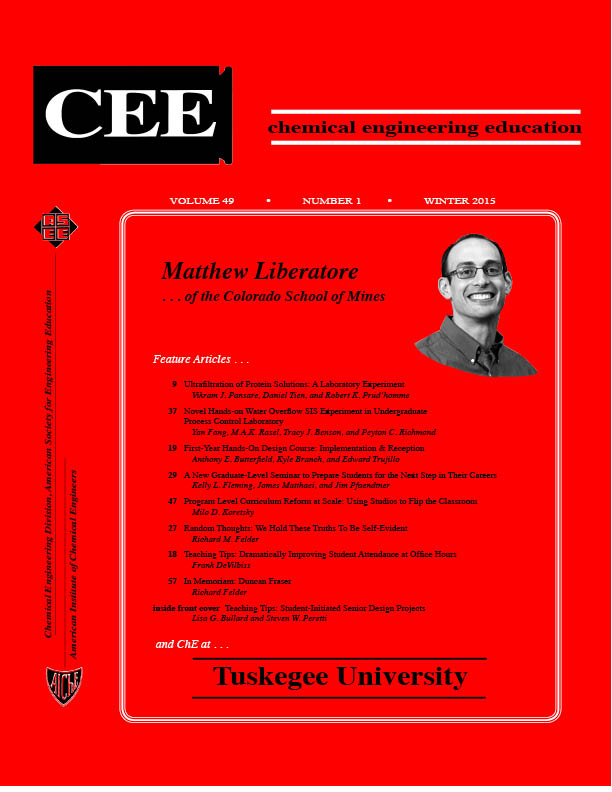A New Graduate Level Seminar to Prepare Students for the Next Step in Their Careers
Resumen
Many new PhDs are not prepared for a competitive interview process in seeking a first job. The
University of Washington (UW) designed the Distinguished Young Scholars Seminar (DYSS) to rectify this problem with three goals: simulate a visit associated with many interviews and a one hour seminar; make UW graduate students aware of where they fit into the job-seekers landscape, and expose UW graduate students to peer evaluation decision making processes that governs funding decisions.


